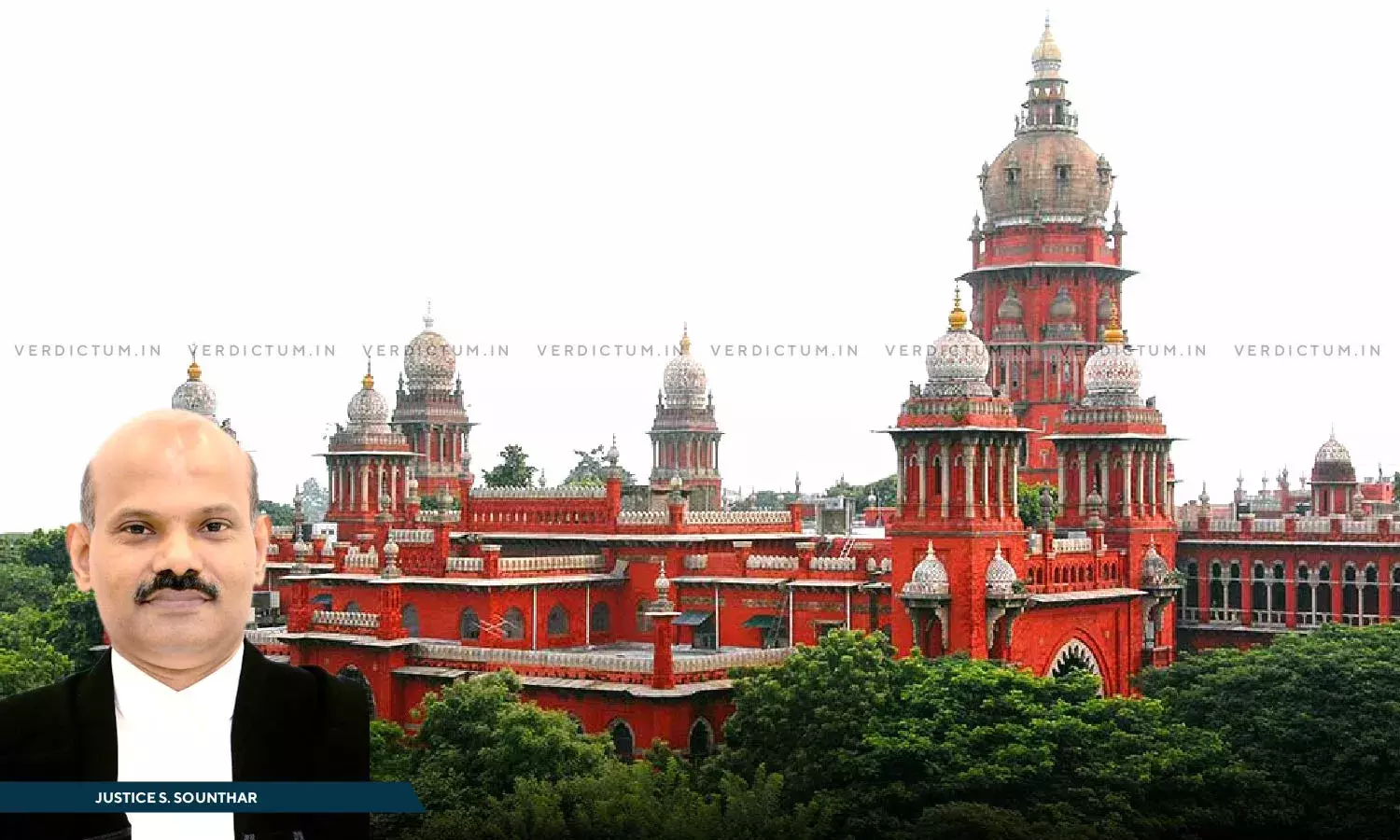When Effective Alternative Remedy Is Available To Aggrieved Party, Petitioner Is Not Entitled To By-Pass It & Rush To Court: Madras HC
The Madras High Court while dealing with a case has held that when an effective remedy is available to the aggrieved party, the petitioner is not entitled to by-pass the same and rush to the court invoking Article 226 of the Constitution.
A Single Bench of Justice S. Sounthar said, “When effective alternative remedy is available to the aggrieved party before hierarchy of Courts including this Court, the petitioner is not entitled to by-pass the alternative remedy available under the Act and rush to this Court by invoking Article 226 of the Constitution of India.”
The Bench noted that the case involves various disputed questions of fact and hence, the petitioner should avail the alternative remedy of appeal wherein such questions of facts could be conveniently adjudicated upon.
Senior Advocate V. Raghavachari represented the petitioner while Special Government Pleader N.R.R. Arun Natarajan, Standing Counsel R. Bharanidharan, Senior Advocate T. Mohan, Senior Advocate S. Parthasarathy, and Advocate T. Ramesh represented the respondents.
In this case, the petitioner was an Archakar of Sri Devarajaswamy Temple, Kanchipuram and as per his case, the said temple was following Pancharathra Agamam. Under Pancharathra Agamam, there were some Samhithas like Jayagya Samhihai/Padma Samhithai and in order to perform pooja as an Archaka in the said temple, proper training under the above-said Samhithas was absolutely necessary.
The persons, who got trained in particular Samhithas under Pancharathra Agamam and got initiated by an Archaka in the particular temple cannot perform Pooja in another temple where a different Samhitha is followed and therefore, persons trained and initiated under Paarameshwara Samhithai could not perform pooja in Sri Devarajaswamy Temple. The petitioner claimed that the Joint Commissioner’s order permitting the other person to be the Archaka without deciding his entitlement to the said position was illegal.
The High Court in the above context of the case observed, “… a person aggrieved by any order passed in a proceedings initiated under Section 63(e) is entitled to file an appeal before the Commissioner and any order passed by the Commissioner in such appeal can be challenged before the Regular Civil Court and decree passed by the Civil Court is liable to be appealed against before this Court. Therefore, the aggrieved person is not only having appeal remedy before the Statutory Authority, he is also entitled to file a suit before the regular Civil Court and move before this Court by way of regular appeal against the decree passed by the Civil Court.”
The Court said that any illegality or irregularity in the enquiry conducted by the Joint Commissioner and his failure to follow the directions of the Commissioner, Hindu Religious & Charitable Endowments (Administration) Department can be agitated in an appeal filed before the Commissioner.
“When petitioner has got alternative remedy of appeal before the 2 nd respondent, it is also open to him to file necessary application seeking interim order. When the matter came up before this Court on 12.01.2023 an interim injunction was granted restraining the 4 th respondent from performing Archakaship till the date of next hearing. The matter again came up for hearings before this Court on 25.01.2023, 05.06.2023, 14.06.2023, 05.07.2023 and 07.07.2023. It appears the interim order granted by this Court on 12.01.2023 was not extended subsequently”, further observed the Court.
The Court, therefore, directed that if any appeal is filed by the petitioner before the Commissioner challenging the order along with a petition for interim orders, such application for an interim order shall be taken up for hearing immediately by the Commissioner without any delay.
Accordingly, the High Court dismissed the plea providing liberty to the petitioner to file a statutory appeal.
Cause Title- S. Krishnasamy Bhattar v. The Joint Commissioner & Ors.



